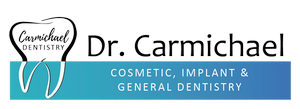5 Tips to Ensure Restful Sleep After Wisdom Tooth Removal

While wisdom teeth removal is a common procedure with a very high success rate, patients can get very nervous about the pain that comes from wisdom tooth removal. While most patients feel temporary tenderness, soreness, and numbness post-surgery, there are some things you can do to reduce the pain and get better sleep. In today’s blog, we will be covering 5 tips to ensure restful sleep after wisdom tooth removal.
1. Don’t Forget to Take Your Pain Medication
Even the slightest pain can hinder your delicate efforts of trying to fall asleep. This is why oral surgeons prescribe painkillers to ensure a good night’s sleep. Skipping over-the-counter medication is not a good idea as it’s a key part of your pain management plan. If the pain still persists, you can also apply a cold compress to the affected area. This will help to reduce swelling and soothe the soreness. You should contact your dental office in case the pain becomes unbearable.
2. Sleep with Your Head Elevated
Sleeping with your head elevated after wisdom tooth removal is important because it helps reduce swelling and promotes healing. Elevating your head helps to reduce post-operative discomfort by draining fluids away from the extraction site and prevents any further buildup of fluids. This will help to reduce any pain and aid in a quicker recovery.
When you sleep with your head elevated, it helps to slow down the flow of blood to the area and reduces inflammation, which can be uncomfortable after oral surgery. Additionally, sleeping with your head elevated can help to reduce the risk of developing a dry socket, which is a painful complication that can occur after wisdom tooth extraction. A dry socket occurs when the blood clot that normally forms to protect the wound after surgery becomes dislodged, exposing the bone and nerves. By sleeping with your head elevated, you can help to minimize the risk of developing a dry socket and promote faster healing after your wisdom tooth extraction.
3. Stay Hydrated and Well-Fed
Staying hydrated is vital for an efficient and prompt recovery. While checking normally may not be possible for several days, there are many yummy options to enjoy during your recovery time, including:
- Yogurts
- Apple sauce
- Blended soups
- Mashed potatoes
- Mashed bananas
- Smoothies
- Refried beans
Note: be sure to refrain from hard, crunch, or spicy food as it can hurt/irritate the site where your wisdom tooth was removed. You should rinse your mouth with salt water after eating to improve recovery time.
4. Stay Away from Alcohol & Tobacco
It is not recommended to drink alcohol or use tobacco after wisdom tooth removal. Alcohol can thin the blood and increase the risk of bleeding and interfere with the healing process. Tobacco can also increase the risk of complications, such as infection and delayed healing. Additionally, both alcohol and tobacco can interfere with the effectiveness of pain medications and make it more difficult to manage the pain.
5. Avoid Dislodging a Blood Clot
As previously mentioned, dislodging a blood clot can be a big problem. It will delay the healing process and cause a dry socket. This is one of the most common reported issues patients experience, so you should be sure to take the proper actions to avoid this problem. Here are some tips to prevent any complications:
- DO NOT brush around the operated site for at least 24 hours. Direct contact with the toothbrush can dislodge a blood clot.
- DO NOT drink for a straw as the suction can impact the blood clot
- Use two pillows to keep your head elevated during sleep
- Avoid sleeping late during the first 48 hours after the operation. It’s important to give your body sufficient rest for wound healing.
Taking proper care of yourself after a wisdom tooth removal is important for a smooth and quick recovery. This includes following your dentist’s instructions for post-operative care, such as taking pain medication as prescribed, avoiding solid foods for the first few days, rinsing your mouth with salt water to promote healing, and sleeping with your head elevated. Additionally, it is important to avoid smoking or using straws, as these can dislodge the blood clot and slow down the healing process. By following these guidelines and taking proper care of yourself after wisdom tooth removal, you can reduce the risk of complications, minimize pain and swelling, promote faster healing, and enjoy better sleep. We hope this list of 5 tips to ensure restful sleep after wisdom tooth removal helps! If you need to schedule a wisdom teeth removal appointment or have any questions, feel free to reach out to our friendly team! Give us a call at (858) 484-2560 or click here.




